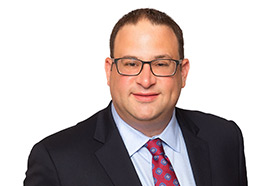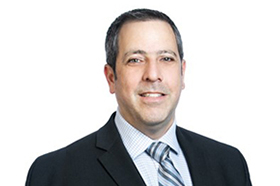For the past decade, private equity (PE) firms have invested more than $750 billion in a wide range of U.S. healthcare initiatives1 , including funding research and development in life sciences and providing capital for physician practices.
The current climate is bringing new challenges for PE firms considering new investments in healthcare. “A driving factor in recent years has been the labor shortage and the challenges inherent in adequately staffing operations,” said Grant Thornton Transaction Advisory Partner Lance Beder.
“Private equity is not immune to any of the macroeconomic factors that any industry is experiencing,” said Grant Thornton Transaction Advisory Partner Glenn Barenbaum. “In the current higher interest rate environment, access to cheap debt is no longer available and capital a more difficult to obtain. That being said, private equity has significant dry powder to invest in healthcare and it’s a sector that many private equity firms are interested in,” Barenbaum said.
A pause in deal volume in the first half of 2023 created an expectation that deal activity would continue to be delayed. “We’ve seen it dip a little earlier this year, but there’s still tremendous a high interest in private equity investing in healthcare due to its favorable economic dynamics,” Beder said. What are most common now are creative deal structures, as well as higher level of rollover of equity.
Making the best deal
Why invest in healthcare?
There are many reasons why there continues to be a high level of interest in healthcare among PE investors. “It’s a sector that is somewhat economically recession-proof,” Beder said. “A dynamic driving PE investment is innovation. Healthcare is at the forefront of innovation and technology. There is tremendous interest to investing in the healthcare ecosystem to help drive better outcomes—to invest in companies that are innovative and are leveraging technology to create better patient outcomes at a lower cost.”
Private equity investments are making a difference across the board. PE firms have invested in clinical trials for a wide range of drug candidates. According to a recent report2, private equity invested in more than 1,800 life science and medical device companies, resulting in the development of life-saving treatments like mRNA vaccinations that have driven profound change in the industry. Private equity has also played a critical role in providing medical practices with capital to invest in enhanced technology, expand and improve the level of care, and achieve economies of scale.
“In order to be truly impactful, private equity needs to drive operational value, not just compress operating costs to extract margin,” Beder said. “It’s a lesson that we have learned before, with the challenges of PPM (physician practice management) transactions in the 1990s and early 2000s.”
What PE looks for in a healthcare acquisition
When assessing investment opportunities, PE firms look for a business that can grow organically. “When we provide due diligence services, a key analysis is to assess organic versus inorganic growth,” Barenbaum said.
During the due diligence process, all functional areas of the business—financial, operational, IT, human resources—should be examined and assessed to understand the key risks that a potential investor would inherit. These risks could include commitments or contingencies that the investor may need to take on, a lawsuit or a long-term lease that is not an efficient operating unit, or long-term employment agreements that the investor may be legally bound to carry out.
“In addition to identifying and mitigating potential risks, we look to find potential opportunities and operational synergies,” Barenbaum said. “Simple synergies might include consolidating the back office to drive higher economies of scale, while more sophisticated synergies could include the potential sale of services and solutions to other clients within the investors’ portfolio, creating a springboard effect.”
Read more on growth strategies
ARTICLE
ARTICLE
Oversight considerations
Increased scrutiny on the horizon
The Department of Justice and the Federal Trade Commission recently indicated a renewed focus on antitrust enforcement of private equity’s role in healthcare3. More states are getting involved, too. The California Department of Healthcare Access and Information recently released draft regulations requiring consolidations or acquisitions to be approved by an oversight committee—a move that may add complexity and costs to future private equity investments4.
“What tends to influence private equity healthcare investors more is Medicare,” Beder said. “Although it is not a regulator, it is the largest payer group, and its actions affect reimbursement of other payers.” At the moment, this is having a significant impact on private equity investment within the home healthcare sector. Deals in this sector have slowed dramatically because of an impending reimbursement change by CMS. “The proposed rule on ownership and disclosure for skilled nursing facilities has caused PE firms to pump the brakes on home health investment,” Barenbaum added.
What’s ahead for PE healthcare investment
Today, many PE firms are interested in investing in a fragmented healthcare delivery system and to help drive improved patient outcomes at a lower cost. There are more healthcare-focused funds that are raising capital to focus exclusively on healthcare.
The field is becoming increasingly specialized and PE firms are becoming more formalized, focusing on developing deal teams and operators that are experts in specific healthcare subsectors that are targeted. “That’s because buyers and sellers want to engage with qualified investors that know their business,” Beder added. “More than just a financial restructuring of the balance sheet, they want someone that can come into the business and help grow and improve it.”
Contacts:


Partner, Transaction Advisory Services, Diligence Healthcare
Grant Thornton Advisors LLC


Partner, Transaction Advisory Services, Diligence Healthcare
Grant Thornton Advisors LLC
More healthcare insights

No Results Found. Please search again using different keywords and/or filters.


Share with your network
Share